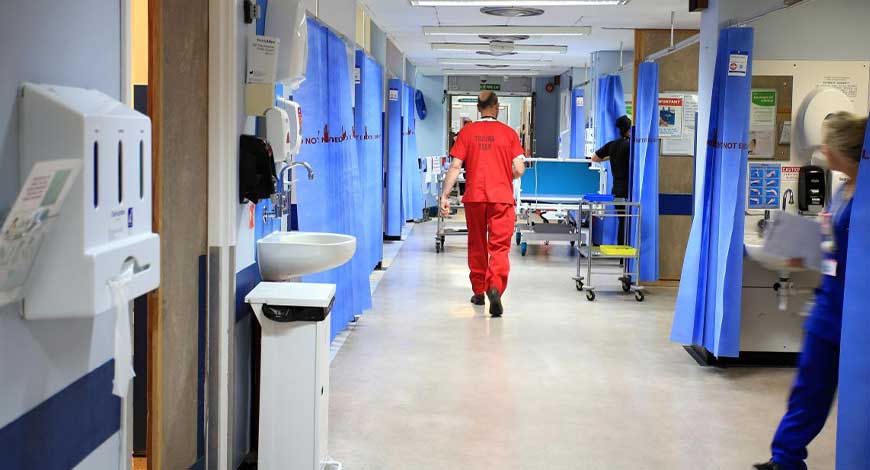International Circuit
NHS trusts in England asked to step up staff safety training

One of the largest NHS trusts in England must step up staff safety training in its emergency departments, inspectors have said.
University Hospitals Birmingham (UHB) NHS Foundation Trust must make improvements at several hospitals after a Care Quality Commission (CQC) visit.
Serious issues around A&E safeguarding were uncovered and not all staff had done mandatory training, the CQC said.
The trust has been contacted by the BBC News for a response.
The visit came after the trust was heavily criticised when cases of bullying and a toxic environment were revealed in a report, published in March 2023.
The CQC compiled that report after an inspection in December 2022, which happened a week after a joint investigation by BBC West Midlands and Newsnight revealed the climate of fear at the trust that was putting patients at risk.
A warning notice was issued to the trust in that month after serious staffing issues were identified.
On Tuesday, the doctor in charge of medical training for NHS England apologised unreservedly to the family of a medic who worked at UHB who took her own life.
A spokesperson for UHB previously said it needed to learn following Dr Vaish Kumar’s death after she left a suicide note blaming her death entirely on the hospital where she worked.
In the latest inspections, the watchdog looked at urgent and emergency care at Birmingham Heartlands Hospital, Queen Elizabeth (QE) Hospital Birmingham, and Good Hope Hospital in Sutton Coldfield.
Richard Burden, chair of Healthwatch Birmingham and Healthwatch Solihull, said it was worrying patients were not always protected from harm, as well as there being low staff numbers and inadequate safeguarding procedures.
“These problems have been compounded by the fact that – although many patient safety incidents are escalated and investigated – feedback and lessons learned are not always shared with the staff effectively, meaning opportunities for improvement are lost,” Burden said.
Neurosurgery and and cancer services were also assessed at the QE, along with medical services at Good Hope Hospital and Heartlands.
All of those services had been rated as either inadequate or requiring improvement.
Inspectors said they found leaders did not always run services well or manage risk effectively.
People could not always access some services or receive the right care promptly and governance systems were not always effective, the CQC inspection showed.
However, staff provided emotional support people to minimise their distress and offered support and understanding about patients’ condition.
The inspections were carried out last year after the CQC said it received concerning information about some of the services being provided.
Conclusions of the CQC inspection:
- Urgent and emergency care at Queen Elizabeth Hospital has again been rated as requires improvement overall
- Urgent and emergency care at Heartlands Hospital has improved from inadequate to requires improvement
- Urgent and emergency care at Good Hope Hospital has dropped from requires improvement to inadequate
- Neurosurgery at Queen Elizabeth Hospital has been rated requires improvement. This is the first time the service has been rated
- Cancer services at Queen Elizabeth Hospital has gone down from good to requires improvement
- Medical services at Good Hope Hospital have dropped from requires improvement to inadequate
- Maternity services at Birmingham Heartlands Hospital remains rated as inadequate
In this visit, the CQC said the trust had not met the requirements of the previously issued warning notice and because of further issues being uncovered, conditions were placed on its registration.
Conditions have also been imposed on the trust’s registration for issues around safeguarding in the three urgent and emergency care service departments inspected. BBC














